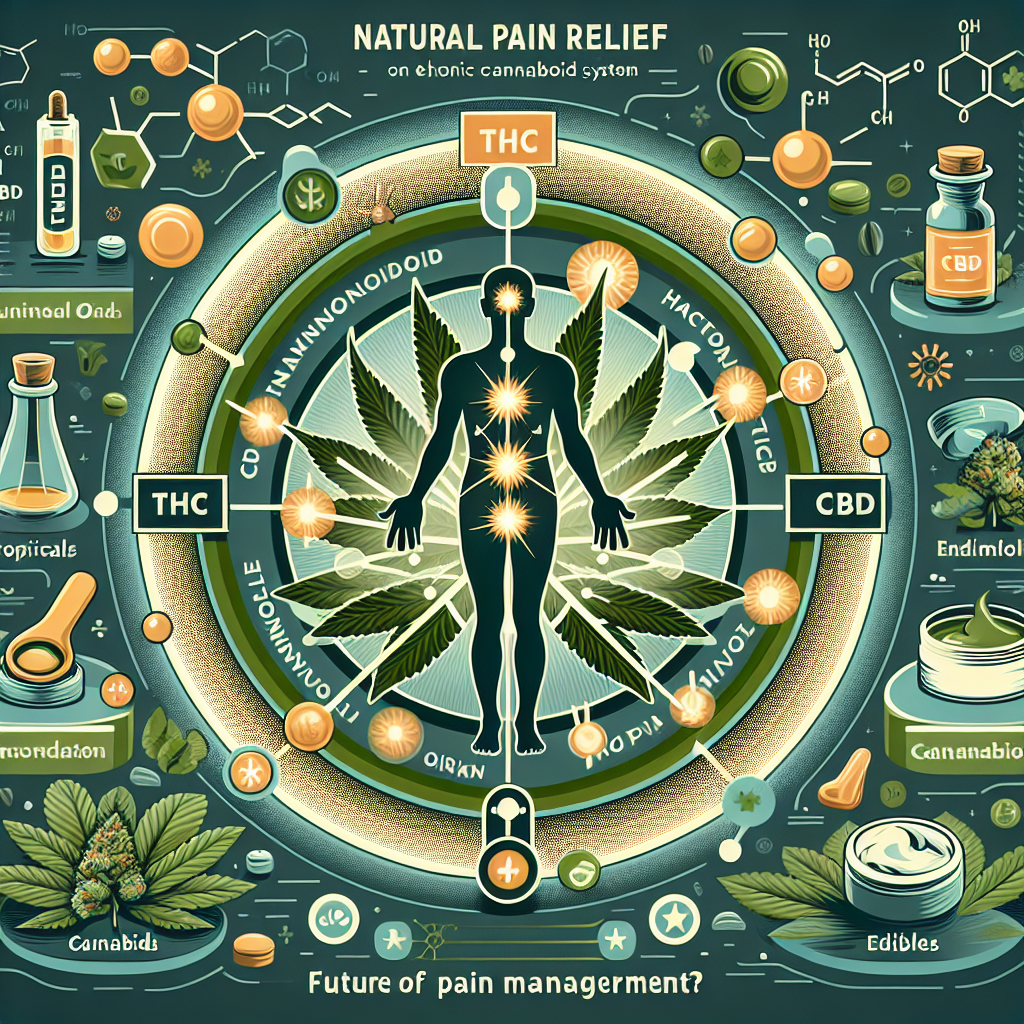Cannabinoids for Chronic Pain Management: Complete Guide
The Science Behind Cannabinoids: A Natural Solution for Pain Relief
The use of cannabinoids for chronic pain management is supported by a growing body of scientific evidence. Preliminary research and clinical trials showcase the effectiveness of both THC and CBD in reducing pain intensity and improving quality of life for individuals suffering from various conditions. Cannabinoids interact with CB1 and CB2 receptors in the human endocannabinoid system (ECS), altering pain perception and reducing inflammation.
Fighting the Opioid Crisis: Cannabinoids as a Safer Alternative
A study found that patients using medical cannabis reported a 64% reduction in prescription opioid use for pain management, highlighting the potential role of cannabinoids in fighting the opioid crisis.
CBD: The Non-Psychoactive Powerhouse for Pain and Inflammation
CBD, in particular, has gained attention for its anti-inflammatory and antispasmodic properties. Research has shown that CBD’s non-psychoactive profile and role in modulating serotonin levels make it an appealing choice for individuals with chronic pain conditions.
Topical Cannabinoids: Targeted Relief Without Systemic Side Effects
Topical cannabinoid products have become an area of interest, allowing for targeted relief without systemic psychoactive effects.
Real-World Success Stories: Patient Perspectives on Cannabinoid Use
Data from legal cannabis programs suggests that many individuals using cannabis for therapeutic purposes experience improvement in chronic pain symptoms, as well as better sleep quality and reduced dependency on conventional medications.
Challenges and the Road Ahead for Cannabinoid-Based Therapies
The legal and regulatory framework surrounding cannabinoids remains complex, with concerns about accessibility, dosage standardization, and consistency of products. Long-term research is still needed to fully understand the mechanisms of action and potential risks of cannabinoids in chronic pain management.
Conclusion: A Green Future for Chronic Pain Management
Cannabinoids represent an exciting frontier in the treatment of chronic pain, providing a natural alternative to traditional pharmaceuticals. While challenges persist, the evidence suggests that cannabinoids are transforming the pain management landscape, offering a promising future for pain relief.
Summary:
Cannabinoids, including THC and CBD, have emerged as a promising alternative for chronic pain management, with a growing body of scientific evidence supporting their effectiveness. Cannabinoids interact with the endocannabinoid system to reduce pain, inflammation, and associated symptoms. Research also suggests that cannabinoids can be a safer alternative to opioids, potentially helping to address the opioid crisis. While challenges remain, such as legal and regulatory barriers, the use of cannabinoids for chronic pain management is transforming the pain relief landscape.
References:
– [JAMA: Cannabinoids for Medical Use – A Systematic Review and Meta-analysis](https://jamanetwork.com/journals/jama/fullarticle/2338250)
– [Health Affairs: Medical Cannabis Laws and Their Impact on Prescription Opioid Use](https://www.healthaffairs.org/)
– [Therapeutics and Clinical Risk Management: Efficacy of Cannabidiol for Pain Management](https://www.dovepress.com/therapeutics-and-clinical-risk-management-journal)
– [Pain Medicine: Transdermal Cannabidiol for Pain and Inflammation](https://academic.oup.com/painmedicine)




